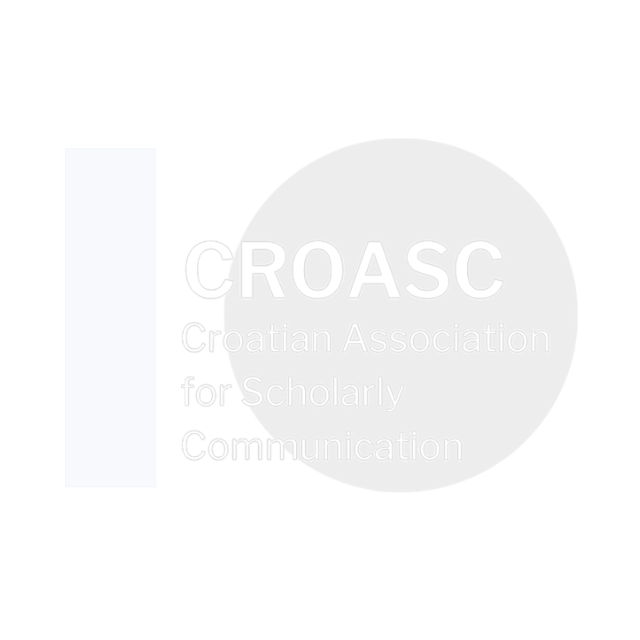How Promising Are Institutional Rights Retention Policies as a Route to Open Science?
short talk × thursday × 11.30-13.00
Ignasi Labastida Juan
Universitat de Barcelona
Barcelona, Spain
Iva Melinščak Zlodi
University of Zagreb Faculty of Humanities and Social Sciences
Zagreb, Croatia
Vanessa Proudman
SPARC Europe
Netherlands
Clara Riera-Quintero
SPARC Europe
Netherlands
Jon Treadway
Great North Wood Consulting
London, UK
The widespread adoption of Open Science in Europe continues to face persistent challenges, particularly when it comes to the legal complexities surrounding the sharing and reuse of copyrighted scholarly works. One promising mechanism to address this issue is the adoption of institutional rights retention policies, which enable researchers to retain sufficient rights over their outputs, thereby facilitating wider dissemination and permitting reuse by others.
This presentation shares insights from Project Retain, a two-phase research initiative led by SPARC Europe under the Knowledge Rights 21 programme. The project explored how rights retention and open licensing policies were being developed and implemented across a range of legal, political, organisational, and economic contexts in Europe. The study employed a mixed-methods approach combining policy analysis, stakeholder interviews and focus groups, with comparative case studies. In Phase 1, we conducted a desk-based review of rights retention and licensing practices across European institutions, complemented by interviews and focus groups with stakeholder representatives to contextualise the findings (Labastida et al., 2023).
In Phase 2, completed in spring 2025, we applied a qualitative comparative case study framework. This involved the selection of ten countries based on legal diversity, policy maturity, and geographical representation. We then conducted semi-structured interviews with institutional leaders, legal experts, and policy stakeholders from each country, supported by document analysis of institutional and national policy texts (Treadway et al., 2025).
The research revealed the significant influence of both external and internal factors in shaping institutional rights retention policies. Key external factors include:
- National legislation, particularly laws on copyright, intellectual property, contracts, and secondary publishing rights, which determine the scope of author and institutional control over scholarly outputs.
- Science and innovation policies, which can either incentivise or constrain institutions from adopting rights retention approaches.
- National Open Science frameworks, funder mandates, and research assessment policies, which shape institutional priorities and researcher behaviour.
- Publishing culture and infrastructure, including the prevailing models of Open Access (green OA, gold OA with APC or Diamond OA), availability of repositories and platforms, and the role of read-and-publish agreements.
At the same time, some internal factors play a role in how institutions develop and implement policies, for instance:
- Existing institutional policies, such as those related to Open Access, intellectual property, or research dissemination.
- Leadership attitudes, which may range from proactive engagement to cautious risk aversion, significantly impact the speed and ambition of policy development.
- Institutional capacity, including the ability to support researchers, provide legal guidance, and handle publisher negotiations, which affect practical implementation.
Although policies remain in their early stages in many contexts, our findings demonstrate their potential to support researcher autonomy, improve Open Access compliance, and reduce dependence on publisher-controlled dissemination. The research highlights the need for greater awareness of the flexibility and strategic value of these policies, as well as the institutional and systemic conditions that facilitate their uptake.
To facilitate ongoing knowledge exchange and peer support, Project Retain launched the European Rights Retention Community of Practice in late 2024. This online space continues to bring together professionals working on Open Science and rights retention policies to share experiences, address common challenges, and develop coordinated strategies.
keywords
Copyright; Open Access; Open Science; Policies; Rights retention
References
Labastida i Juan, I., Melinščak Zlodi, I., Proudman, V. & Treadway, Jon. (2023). Opening Knowledge: Retaining Rights and Open Licensing in Europe. Zenodo. https://doi.org/10.5281/zenodo.8084051
Treadway, J., Labastida, I., Melinščak Zlodi, I., & Proudman, V. (2025). Building bridges to Open Access. Paths to Institutional Rights Retention in Europe 2024 (Version v1). Zenodo. https://doi.org/10.5281/zenodo.15078315










